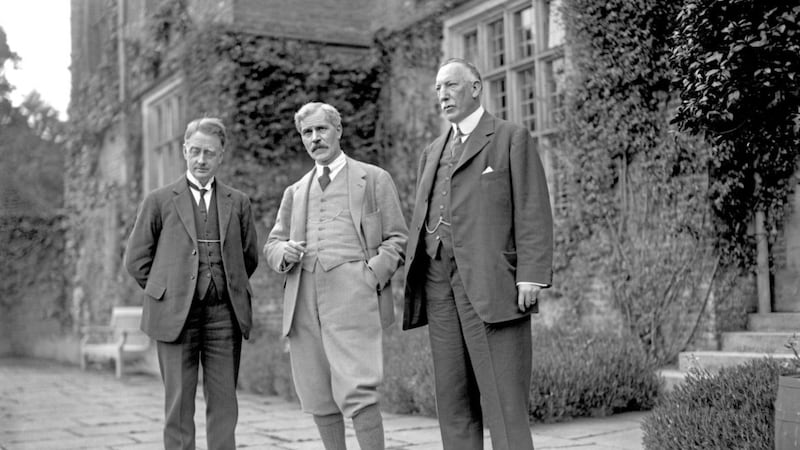I had started writing this column on policing and the very real challenges with recruitment and normalisation.
But circumstances of this last few days took me off in a very different direction, so we’ll have to come back to that on another date.
There are aspects of our modern lives that I’m grateful didn’t exist when I was growing up as I’m not sure teenage Allison would have been able to cope with the pressure.
I was aware who Caroline Flack was, she of the amazing legs, great hair and a seemingly perfect celebrity lifestyle.
From interviews with friends of the presenter, who tragically took her own life at the age of 40, I now know this was all a façade and far from the reality of her very troubled life.
That hasn’t stopped the speculation and hysteria around her sudden death.
It’s common for people to search for answers when someone, whether they are famous or not, takes their own life.
In Northern Ireland suicide is far too common an occurrence.
We have the highest rate of suicide on these islands and that is simply not an acceptable statistic.
For any family who experiences a sudden loss there will always be a need for answers, answers that may not always be readily available.
Many people who choose to end their own life are not celebrities, you or I will not instantly recognise their name or have ever seen their face on the cover of a magazine.
But they will have been no less loved by those they leave behind.
There is room for debate about the role of the tabloid media, but remember these publications do not operate in a vacuum, they are a supply and demand, money making business and therefore society itself needs to ask why they are so fascinated with clickbait ‘infotainment’ dressed up as news.
The two publications receiving the most criticism in the wake of Ms Flack’s untimely death, the Sun and the Daily Mail, are also the two most read.
They are also the publications that aspiring celebrities use to build their profiles with planted stories and staged paparazzi pictures.
Self-reflection from the customers who consume this type of information on people they don’t know and are unlikely to ever meet wouldn’t go amiss as well a look at the celebrity agents who use this system to create personalities from conveyer belt reality contestants.
Ms Flack’s family released a very moving statement written by Caroline prior to her death to their local newspaper the Eastern Daily Press. The so-called mainstream media is not a monolith, we are not all hunting through bins or hacking phones, the family’s trust in their local paper is an example of that.
And then there is the role of social media in how people now view themselves.
The airbrushed, filtered images of unobtainable perfection.
I have about three pictures of myself as a teenager, none of them very flattering, that was when pictures were taken with a camera and developed in a chemist shop.
Now people walk around with a camera in their hand, they have thousands of images on their phone, they edit which ones make it online so all we ever see are perfect images of well lived lives.
It’s not real, none of it is real.
When my children ask to see pictures of their grandparents, they are shown beautiful black and white images of a very different and simpler time.
I wonder how the grandchildren of this generation will react to seeing Snapchat pictures of their grandparents with skin so filtered they look like plastic dolls.
The impact this constant bombardment of celebrity culture and image has on young minds is not yet fully understood.
The reality show contestant generation, famous for being beautiful, defining your own self worth on nothing but attractiveness is not healthy.
We all get older, youth and beauty fade, someone younger is always ready to step in and fill that space.
The cult of celebrity is like the Hunger Games for beautiful people and that trickles down into society as popularity and social media likes become life defining.
We can always be kinder to strangers, but that will not solve the mental health crisis.
What the past few days have shown is that image is not always reality and beauty and fame are not an instant guarantee of happiness.
And that kind of honesty and resilience is something we should be teaching our young people from school age up.








